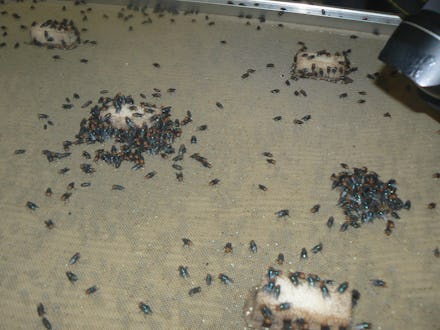Flesh-eating screwworms in Florida: What to know about symptoms, treatment and eradication

On Oct. 3, the United States Department of Agriculture confirmed grim news for Floridians: Screwworms, the flesh-eating pests that were thought to have been wiped out in the U.S. 30 years ago, are back.
"The screwworm is a potentially devastating animal disease that sends shivers down every rancher's spine," Commissioner of Agriculture Adam H. Putnam said in a press release from the Florida Department of Agriculture. "It's been more than five decades since the screwworm last infested Florida, and I've grown up hearing the horror stories from the last occurrence."
As of last week, three deer in the Big Pine Key and No Name Key areas tested positive for screwworms, in addition to "a few pets" nearby who have been exhibiting signs of screwworm infection. The signs of infection are mostly visual: According to the Atlantic, screwworms "lay eggs in open wounds" before the "hatched larvae burrow, corkscrew-like, through flesh."
Though the worms typically target "livestock, dogs and deer," in rare cases they've been known to affect humans.
To prevent the spread of the screwworms, officials have implemented a checkpoint for any animals being transported north. But, of course, their intent is not just to contain the screwworms, but to eradicate them completely.
Officials are confident they'll be able to do just that — after all, they've done it before. The Atlantic reported that the USDA discovered they could sterilize male screwworms by blasting them with X-rays. Releasing the sterilized screwworms into an infested area turned out to be the key to wiping them out entirely in 1982.
Putnam said he feels confident about solving the latest outbreak.
"We've eradicated this from Florida before, and we'll do it again," he said. "We will work with our partners on the federal, state and local level to protect our residents, animals and wildlife by eliminating the screwworm from Florida. The public's assistance is crucial to the success of this eradication program."